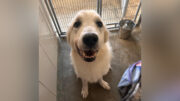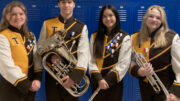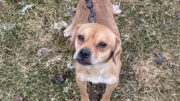HARRISBURG – The Pennsylvania Game Commission is conducting a statewide survey of osprey nests this year.
The osprey is one of Pennsylvania’s most popular raptors. Like the bald eagle, it is a charismatic bird of conservation concern that is strongly associated with aquatic habitats. Yet often it is found near humans, according to the commission’s ornithologist Doug Gross. Unique in appearance, it is truly the “people’s fish hawk,” Gross said.
People who know the location of a pair of nesting ospreys should contact the game commission.
The osprey population has grown steadily since its reintroduction in the 1980s. Although the game commission has located more than 100 nests in recent years, some nests have been overlooked.
“That is why we need your assistance,” Gross said. “The osprey nest survey is an initiative that would not be possible without the help of volunteers.”
More information about the survey can be found on the game commission’s website. Interested persons can download the Osprey Nest Survey Form along with the Nest Observation Protocol, and submit it to ospreypa.gov. Nest observations should be reported by July 31.
A statewide osprey survey was completed in 2010 and at least 115 nests were found. Since then, ospreys have continued to expand into new areas, the game commission said.
“We would like to learn of these new nests. Please do not assume that a nest location you know has been covered by somebody else,” Gross said.
The coordinates of the nest support structure are important to include as well. People should use online mapping programs to find the coordinates.
The osprey nest data will be used to update the Pennsylvania Natural Heritage Program database and also enable us to better understand the status of this state-threatened species and its management potential, the game commission said.
“We intend to find at least 10 active nesting pairs in at least four different watershed clusters. That is a modest goal that we are confident that we can achieve with your assistance,” Gross said.
Keep your distance from nesting eagles
Meanwhile, the game commission issued some tips and guidelines for viewing eagles’ nests.
There are few sights more thrilling than a bald eagle at its nest or in action along a shoreline. Responsibilities come with this enjoyment, the game commission said.
“As you enjoy eagles, you must ensure your presence and behavior do not have a detrimental effect on the eagles or their future use of the area,” the commission said.
Eagle nests and young eagles are easily disturbed, according to the commission.
“By causing a premature fledging, you can inadvertently cause injury or death of an eaglet that can not yet fly or defend itself,” the commission said.
Flushing eagles from a roost site or a feeding ground causes unnecessary stress and may expose the eagle to additional predators, according to the commission.
“So please keep your distance from eagle nests and roosts. Respect their space. Enjoy their presence at a distance with good optics,” the commission said.
Viewing guidelines
The commission issued several general etiquette guidelines for avoiding eagle disturbances:
— Stay back – Keep at least 1,000 feet from an active nest, roost, or feeding area. Use optics like binoculars or a telescope to view the eagles at a distance.
— Remain quiet – If you must talk, whisper.
— Cover up – Use your vehicle or boat as a blind; eagles often are more alarmed by pedestrians.
— Avoid sudden movements – Do not move quickly or toward the eagles or the nest while on foot or in a vehicle or boat.
— Do not try to make the birds fly – Flushing an eagle off a nest may expose the eggs or young eaglets to cold or wet weather or a nest predator. It also wastes precious energy and may cause them to leave a valuable meal behind or abandon a nest that they are constructing.
— Pay attention – Watch how the eagle reacts to your presence – if it acts agitated, vocalizes repeatedly, or starts moving away, you are too close.
— Stay out – Respect restricted zones. They protect eagle nesting areas. And you are breaking state and federal laws if you enter them.
— Respect the privacy of the landowner – Do not tell everyone about a new eagle nest. It will attract people to nesting areas who may not use proper etiquette and bring other unnecessary attention to a nest. If you unexpectedly stumble onto an eagle nest, or hear an eagle vocalizing overhead, leave immediately and quietly.






































